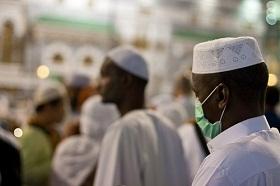Using AI to control energy for indoor agriculture
30 September 2024
Published online 8 September 2010

In August, the World Health Organization (WHO) declared the (H1N1) swine flu pandemic over. Everyone can breathe a sigh of relief that the virus did not wreak the devastating effects many had feared. Health agencies and governments were quick to respond to the outbreak but was this money well-spent in Middle Eastern countries that face a myriad of other health threats?
During the year-long pandemic, several precautions and regulations were put in place, stretching the resources of health ministries of developing countries in the region. The costs went further than the price of stockpiling vaccines and medication to include thousands of lost work hours to the economy and lost school days.
In Egypt, seven out of every 1000 schools had to shut for at least two weeks after students were diagnosed with H1N1 infection. To avoid the overcrowding that is common in Egyptian public schools, school days were cut down to half to accommodate alternating shifts for the students. With more than 2,000 students in each school, this greatly interrupted education time and spurred efforts to make up for lost hours.
"We could not decrease nor ignore any of the WHO's recommended precautions. They were all done for the public interest," said Mohamed Geneidy, acting director of the Central Administration of Prevention Affairs at the Egyptian Ministry of Health and Population.
In Egypt, 112 cases of infection and 36 deaths from the H1N1 pandemic were recorded.
The WHO stresses that the outbreak has entered the post-pandemic stage, but localized outbreaks of different magnitudes may occur. They continue to recommend vaccination against H1N1 either separately or with a seasonal flu shot.
Egypt had initially ordered five million shots of the H1N1 vaccine, while Saudi Arabia, the second most populous country in the region, ordered four million vaccines. Both countries, however, have started exchanging their stored vaccines with pharmaceutical companies for other, more urgently needed drugs, such as antivirals and other vaccines, due to poor public demand for the shots. A strong media campaign criticising the safety of the vaccine turned many people away from it. Egypt had recently exchanged 3.1 million units.
"Under the recommendations of the WHO, we will continue monitoring the infection cases during the Umrah season here in Saudi Arabia. If everything is alright we will stop future monitoring," said Ziad Mimesh, assistant deputy minister for preventative medicine at the Ministry of Health, Saudi Arabia. For 2010, the Umrah season ends mid-September.
"From the start of the pandemic, the WHO offered technical support to all the countries in the region," said John Jabbour, senior epidemiologist at the Regional Office for the Eastern Mediterranean (EMRO) at the WHO. A WHO-trained team set up a centre to help national health ministries in the region around the clock. The WHO also helped the poorest countries in the region to buy and stockpile vaccine shots, added Jabbour.
"The 1918 flu killed 50 million people because the world was not prepared for it. We had to be ready for the sake of people health and safety," said Geneidy, defending the precautionary actions taken.
"By fighting H1N1 we now have complete plans to face any pandemic, and not just H1N1, but other infections that may appear as well," said Jabbour. "The experience with H1N1 has strengthened the regional countries' infrastructures to detect and address any future pandemic the world might face in the future.
"There is no army without weapons, and we will not wait till millions of people die to start fighting such potential pandemics."
doi:10.1038/nmiddleeast.2010.200
Stay connected: